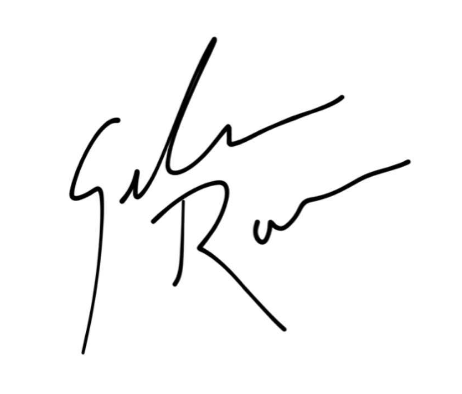Today we remember and honor the life of a courageous and adventurous man who, in the words of one of America’s great communicators, “personifies a view of the world that many see as quintessentially American: not merely optimistic, but scornful of the notion of despair.” President Ronald Reagan
Born in Genoa, Italy, in about 1451, Christopher Columbus, as a young man, worked on a merchant ship until the boat sank after an attack by French privateers, as it sailed along the Portuguese coast. The young Columbus floated to shore on a scrap of wood and made his way to Lisbon, where he worked and studied history, mathematics, astronomy, cartography, navigation … keenly interested in the Bible and in Biblical prophecies.
In 1453, after the fall of Constantinople to the Ottoman Turks, when travel to trade with Asia became difficult and dangerous, the Portuguese explorers tried to find a sea way around the massive continent of Africa. Columbus proposed to sail westward and on his first voyage, on the evening of 3 August 1492, he departed with three ships — Niña, Pinta and Santa Maria. On October 12, the ships made landfall, not in Asia but on one of the Bahamian islands. Although vikings already traveled to the continent, Christopher Columbus’ voyages is historically marked as the “discovery” of the New World, the beginning of the colonization and civilization of the Americas.
In the memorable speech “Citizenship In A Republic” by the 26th President of the United States, Theodore Roosevelt, delivered at the Sorbonne, in Paris, France on 23 April, 1910, from which the words “It is not the critic who counts; not the man who points out how the strong man stumbles, …” is well known, he attempts to describe what it was like for our forefathers, as they were confronted with the challenge of conquering the continent “discovered” by Christopher Columbus:
Strange and impressive associations rise in the mind of a man from the New World who speaks before this august body in this ancient institution of learning. Before his eyes pass the shadows of mighty kings and war-like nobles, of great masters of law and theology; through the shining dust of the dead centuries he sees crowded figures that tell of the power and learning and splendor of times gone by; and he sees also the innumerable host of humble students to whom clerkship meant emancipation, to whom it was well-nigh the only outlet from the dark thraldom of the Middle Ages.
This was the most famous university of mediaeval Europe at a time when no one dreamed that there was a New World to discover. Its services to the cause of human knowledge already stretched far back into the remote past at a time when my forefathers, three centuries ago, were among the sparse bands of traders, ploughmen, wood-choppers, and fisherfolk who, in hard struggle with the iron unfriendliness of the Indian-haunted land, were laying the foundations of what has now become the giant republic of the West. To conquer a continent, to tame the shaggy roughness of wild nature, means grim warfare; and the generations engaged in it cannot keep, still less add to, the stores of garnered wisdom which where once theirs, and which are still in the hands of their brethren who dwell in the old land. To conquer the wilderness means to wrest victory from the same hostile forces with which mankind struggled on the immemorial infancy of our race. The primaeval conditions must be met by the primaeval qualities which are incompatible with the retention of much that has been painfully acquired by humanity as through the ages it has striven upward toward civilization. In conditions so primitive there can be but a primitive culture. At first only the rudest school can be established, for no others would meet the needs of the hard-driven, sinewy folk who thrust forward the frontier in the teeth of savage men and savage nature; and many years elapse before any of these schools can develop into seats of higher learning and broader culture.
The pioneer days pass; the stump-dotted clearings expand into vast stretches of fertile farm land; the stockaded clusters of log cabins change into towns; the hunters of game, the fellers of trees, the rude frontier traders and tillers of the soil, the men who wander all their lives long through the wilderness as the heralds and harbingers of an oncoming civilization, themselves vanish before the civilization for which they have prepared the way. The children of their successors and supplanters, and then their children and their children and children’s children, change and develop with extraordinary rapidity. The conditions accentuate vices and virtues, energy and ruthlessness, all the good qualities and all the defects of an intense individualism, self-reliant, self-centered, far more conscious of its rights than of its duties, and blind to its own shortcomings. To the hard materialism of the frontier days succeeds the hard materialism of an industrialism even more intense and absorbing than that of the older nations; although these themselves have likewise already entered on the age of a complex and predominantly industrial civilization.
As the country grows, its people, who have won success in so many lines, turn back to try to recover the possessions of the mind and the spirit, which perforce their fathers threw aside in order better to wage the first rough battles for the continent their children inherit. The leaders of thought and of action grope their way forward to a new life, realizing, sometimes dimly, sometimes clear-sightedly, that the life of material gain, whether for a nation or an individual, is of value only as a foundation, only as there is added to it the uplift that comes from devotion to loftier ideals. The new life thus sought can in part be developed afresh from what is roundabout in the New World; but it can developed in full only by freely drawing upon the treasure-houses of the Old World, upon the treasures stored in the ancient abodes of wisdom and learning, such as this is where I speak to-day. It is a mistake for any nation to merely copy another; but it is even a greater mistake, it is a proof of weakness in any nation, not to be anxious to learn from one another and willing and able to adapt that learning to the new national conditions and make it fruitful and productive therein. …
A democratic republic such as ours — an effort to realize its full sense government by, of, and for the people — represents the most gigantic of all possible social experiments, the one fraught with great responsibilities alike for good and evil. The success or republics like yours and like ours means the glory, and our failure of despair, of mankind; and for you and for us the question of the quality of the individual citizen is supreme. Under other forms of government, under the rule of one man or very few men, the quality of the leaders is all-important. If, under such governments, the quality of the rulers is high enough, then the nations for generations lead a brilliant career, and add substantially to the sum of world achievement, …
526 years have passed since Christopher Columbus failed in his attempt to reach Asia by sailing west across the Atlantic, but he successfully changed the course of history by arriving at the Bahamas. A century and eight years have passed since President Theodore Roosevelt’s speech cited our forefathers battles to pioneer the New World. We’ve come a long way since those past centuries, passing through the age of discovery, … the industrial age, the information or digital age, as the world is rapidly changing.
Today, we honor not only the brilliant navigator and explorer Columbus, but also the conquering spirit of discovery, experimentation, exploration and the bravery evident in the lives of our predecessors and present in us today, as we continue to conquer and explore new horizons in various dimensions, including experimentation with different forms of government and leadership, … not forgetting why we do what we do, where we came from and where we are going, in this great journey toward a greater future with our sister nations and other nations in the world.
“It is not the critic who counts; not the man who points out how the strong man stumbles, or where the doer of deeds could have done them better. The credit belongs to the man who is actually in the arena, whose face is marred by dust and sweat and blood; who strives valiantly; who errs, who comes short again and again, because there is no effort without error and shortcoming; but who does actually strive to do the deeds; who knows great enthusiasms, the great devotions; who spends himself in a worthy cause; who at the best knows in the end the triumph of high achievement, and who at the worst, if he fails, at least fails while daring greatly, so that his place shall never be with those cold and timid souls who neither know victory nor defeat.” President Theodore Roosevelt
We are grateful for the explorations, discoveries and progress made by our forerunners but “Thanks be to God.” Christopher Columbus
Gelson Rocha [ October 8, 2018 ]
Proclamation 4873—Columbus Day | October 9, 1981
By the President of the United States of America.
A Proclamation.
Christopher Columbus, whose life and exploits we commemorate each October, is one of the true heroes of our Nation’s history.
He is justly admired as a brilliant navigator, a fearless man of action, a visionary who opened the eyes of an older world to an entirely new one. Above all, he personifies a view of the world that many see as quintessentially American: not merely optimistic, but scornful of the very notion of despair.
Nearly five centuries have passed since the fateful day on which Columbus changed the course of history. But his adventurous spirit lives on among us, challenging us to emulation and abiding with us as we too press forward on our voyage of discovery.
In tribute to the achievement of Columbus and to the many sons and daughters of Italy who have helped to shape our life and destiny as a people, the Congress of the United States of America has requested the President to proclaim the second Monday in October of each year as Columbus Day.
Now, Therefore, I, Ronald Reagan, President of the United States of America, do hereby designate Monday, October 12, 1981, as Columbus Day; and I invite the people of this Nation to observe that day in schools, churches, and other suitable places with appropriate ceremonies in his honor.
I also direct that the flag of the United States of America be displayed on all public buildings on the appointed day in memory of Christopher Columbus.
In Witness Whereof, I have hereunto set my hand this ninth day of October, in the year of our Lord nineteen hundred and eighty-one, and of the Independence of the United States of America the two hundred and sixth.
Ronald Reagan
“… I will show you great and mysterious things which you still do not know about.” Eternal King, Source of Great Things and Undiscovered Mysteries

